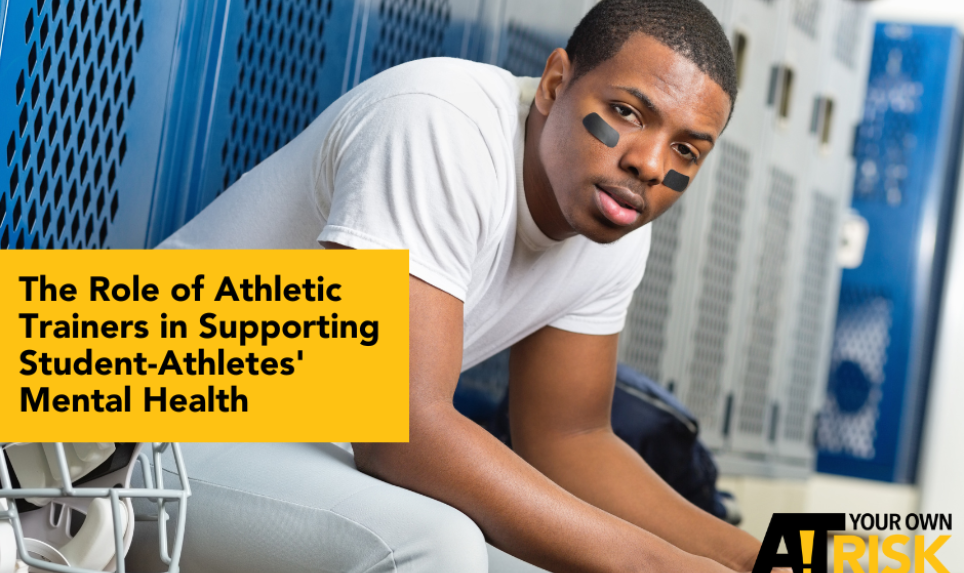While the physical prowess of student-athletes often garners much attention and accolades, their mental well-being can sometimes be sidelined. Recent studies unveil a stark reality: 85% of male athletes admitted that stigma related to mental health made them reluctant to seek help. Furthermore, conditions such as depression, anxiety, and insomnia are significantly prevalent among these young competitors, with figures indicating that up to 50% of athletes experience depression following sport-related concussions.
In light of May being Mental Health Month, it's paramount to address the crucial role athletic trainers play in maintaining student athletes' physical health and mental well-being. Athletic trainers are on the front lines, serving as trusted advisors who can spot early signs of mental distress in athletes. With their unique position, they have the ability to guide athletes to appropriate mental health resources, breaking down the barriers of stigma and reluctance.
The Role of Athletic Trainers in Mental Health
Athletic trainers, as highlighted by AtYourOwnRisk.org—the public-facing arm of the National Athletic Trainers' Association (NATA)—are instrumental in reducing the risk of injury and ensuring the overall health and safety of athletes. Their role extends beyond the physical, encompassing the mental and emotional well-being of the athletes under their care. They are trained to identify the signs of mental health struggles and can act as a critical link to professional help. By fostering an environment where mental health is openly discussed and prioritized, athletic trainers can help mitigate the adverse effects mental health issues have on athletic performance and personal lives. Often times, athletic trainers are the only available person to respond to a student-athlete's mental health needs after the academic day ends.
Seeking Help
For student-athletes experiencing mental health challenges, acknowledging the need for help is the first step toward recovery. Athletic trainers can recommend specialized mental health practitioners who understand the unique pressures athletes face. Schools and universities often have counseling centers equipped to support students dealing with mental health issues, including those specific to athletic performance and injury recovery.
What Athletic Trainers Can Do
When concerned about a student athlete's mental health, athletic trainers can:
- Initiate a confidential conversation to express their concerns and offer support.
- Provide information on mental health resources and encourage athletes to seek professional help.
- Work with coaches, parents, and educational institutions to develop comprehensive support systems for athletes.
- Advocate for mental health awareness and education within the athletic community to reduce stigma.
Resources and Support
For more information on how athletic trainers can support student athletes' mental health and to learn more about employing an athletic trainer, visit AtYourOwnRisk.org. This platform serves as a guide to understanding the critical role of athletic trainers in sports and how they contribute to the safety and well-being of athletes and active populations at all levels.
